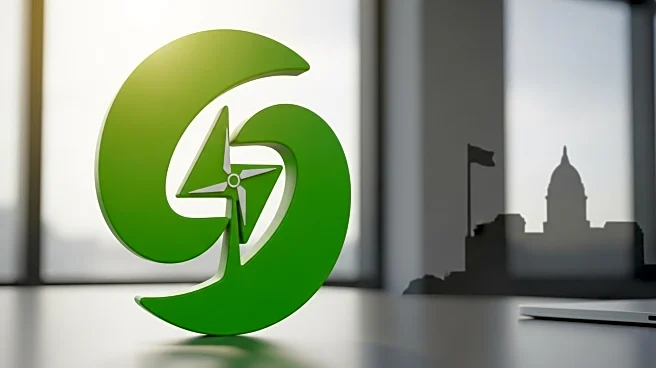What's Happening?
Clean energy jobs in the U.S. grew by 2.8% in 2024, surpassing overall employment growth, according to a report by E2. Over 3.5 million Americans are employed in clean energy sectors, including renewable generation, energy efficiency, and clean vehicles. However, recent policy changes, such as the rollback of Inflation Reduction Act incentives and executive orders halting wind development, threaten this growth. The Trump administration's actions have led to the cancellation of $22 billion worth of clean energy projects, resulting in significant job losses. Offshore wind jobs are particularly at risk due to stop-work orders and revoked permits.
Why It's Important?
The clean energy sector is a critical component of the U.S. economy, providing millions of jobs and contributing to environmental sustainability. The policy changes under the Trump administration could hinder the growth of this sector, affecting job creation and the transition to renewable energy sources. The uncertainty surrounding federal policies and regulations poses challenges for clean energy companies and workers, potentially impacting economic stability and efforts to combat climate change. The situation underscores the importance of supportive policies to ensure continued growth and innovation in clean energy industries.
What's Next?
The future of clean energy jobs depends on the resolution of policy challenges and the potential revision of federal regulations. Stakeholders, including industry leaders, policymakers, and environmental groups, may advocate for stronger support and incentives for clean energy projects. The demand for electricity from the tech industry and consumers, along with global petroleum supply uncertainties, could drive continued interest in clean energy solutions. However, without favorable policies, the growth of clean energy jobs remains uncertain, and efforts to expand clean energy infrastructure may face delays.









